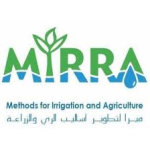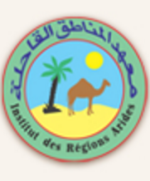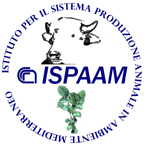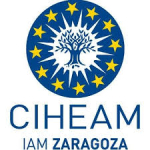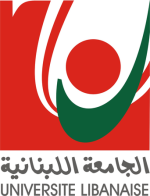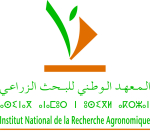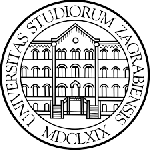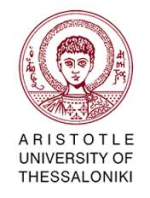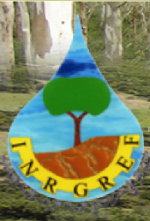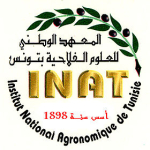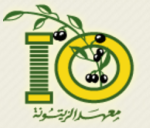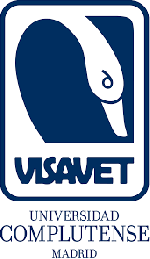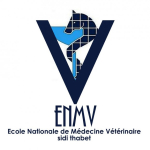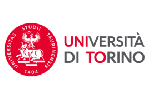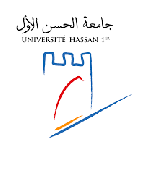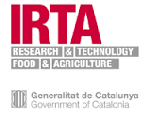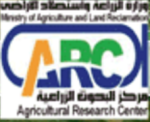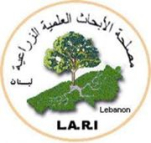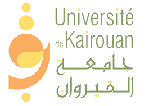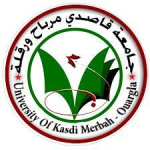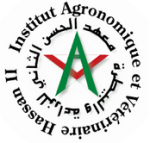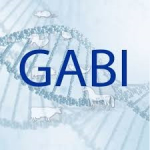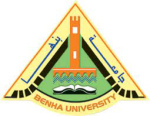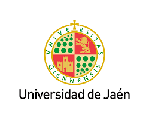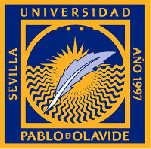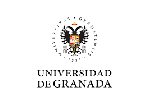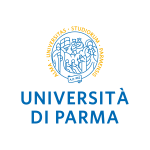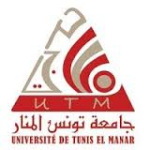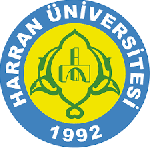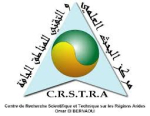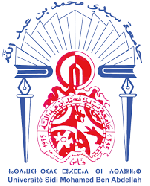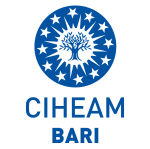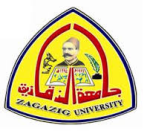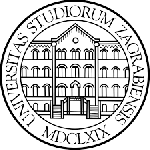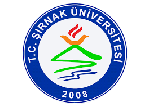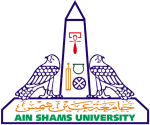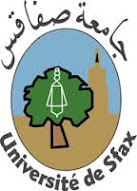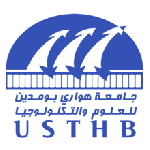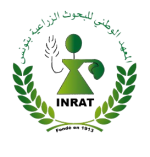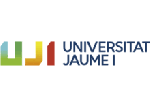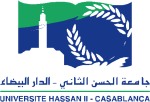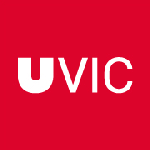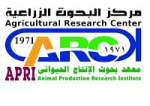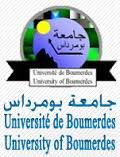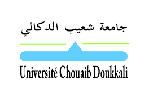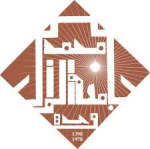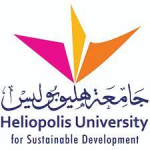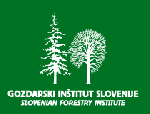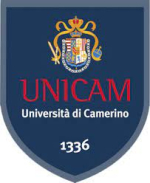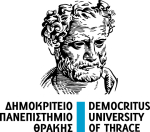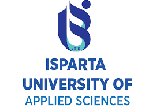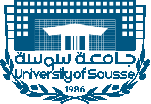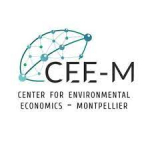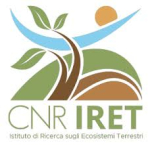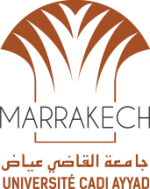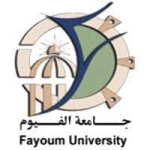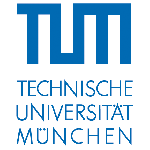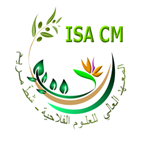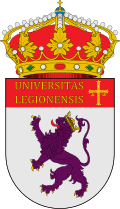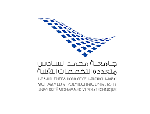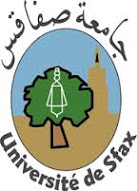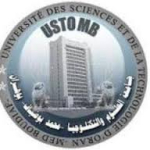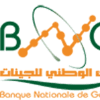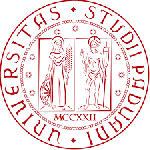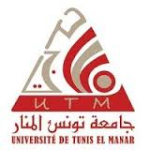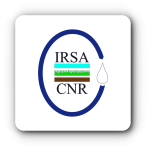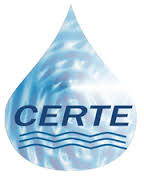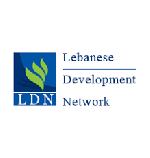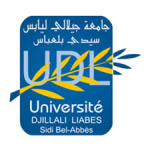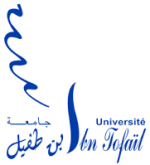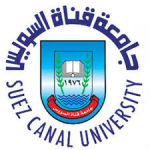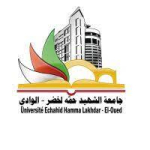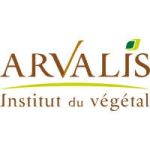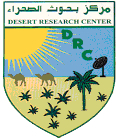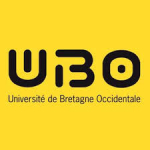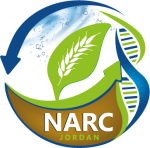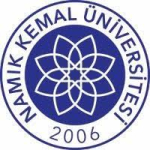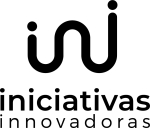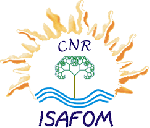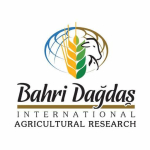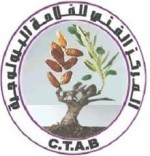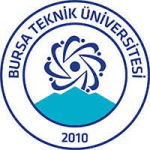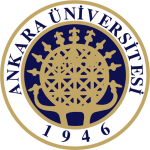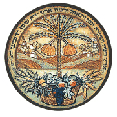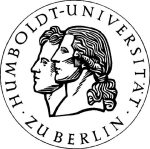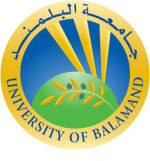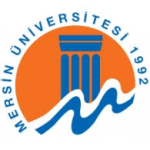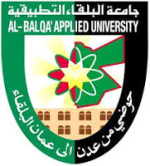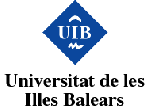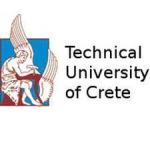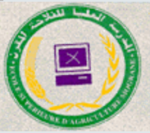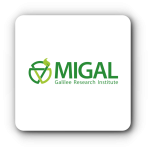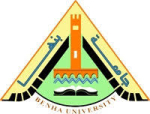Partnership for Research and Innovation in the Mediterranean Area - PRIMA
Overview: FARMING - Sustainable farming systems under Mediterranean environmental constraints
Project Officer Fabrice Dentressangle, Partnership for Research and Innovation in the Mediterranean Area - PRIMA
Team
members: 1146
Partner
organizations: 531
Budget
EUR :
145.886.993
Projects: 97
Atlas
Outcomes and Impact
| Outcomes and Impact | Type | Indicators | View | |
|---|---|---|---|---|
| Impact 1: Improved efficiency and cost-effective climatic control procedures and technologies for Mediterranean year-round greenhouse cultivation. To use the Joule root heating system connected to semi-transparent PV modules and sensorized/ controlled by innovative ICT tools. No external energy will be need. ICT tools will also control other parameters such as ventilation, fertilization & irrigation. A Smart Farming system will be developed to a holistic control of the system. All the information will be used for training of farmers and processing companies. | development outcome | 0 | ||
| Impact 2: Development of innovative technologies and practices to produce organic crops. Encapsulated biopesticides in AZMUD will impact in 1) An improvement in the plant health; 2) Reduction of current environmental problems, 3) Reduction of the number of the treatments in crops due to prolonged efficiency & 4) Prevent natural pesticides degradation. Natural pests can contribute to increase organic crops production. Biodegradable films will reduce the use of pesticides and contribute to organic crops The reduction of the soilless operation costs (root hearing, PV modules, magnetic fields and ultra-low energy drip) will contribute to increase the production using these systems | development outcome | 0 | ||
| Impact 3: Development of innovative and environmentally friendly integrated pest management. IDAI will produce biopesticides by using botanical extracts as mentioned. This is in line with the Directive on the Sustainable Use of Pesticides (EU, 2009a) aims to reduce impacts on human health and the environment, and compromise to identify active substances that can acts as substitutes of synthetic pests. The control release will allow to improve the efficiency of the system along the time and protect against human manipulation and reduction of its efficiency (by effect of temperature, UV or moisture). | development outcome | 0 | ||
| Impact 4: Development of new bio-degradable materials to be used in the cultivation systems able to minimize the disposal of residues & contaminants. AZMUD aims to develop transparent agriculture films suitable for 4 months. i.e., new films are 3 times more resistant than current ones. The films are compostable mixed with waste plants, but if small pieces remain in the soil this will be degraded in a short time (soil biodegradation). The use of natural pesticides will not affect the composability of AZMUD’s films. These films will be used as a much, solarization or disinfection film. | development outcome | 0 | ||
| Impact 5: Cost-effective and socially accepted new cultivation methods aimed at improving hand-labour conditions. In WP6: Environmental, social, regulatory and economic analysis will be performed in order to ensure the full exploitation and farmers acceptance of the proposed technologies. Personal contacts and well-conducted surveys to spread new cultivation will be conducted for improving the experiences of workers. IDAI, MIRRA, TABIT. ECOFARM & NRC partners have a very closed contact with farmers communities. | development outcome | 0 | ||
| Impact 6: Novel tools (best practices, decision support system, models, discussion and co-development platforms, ICT, etc.) assisting farmers management. With our multi specialized team in NRC and TABIT, we will spread new methods for farmers to develop administration & technical supports based on ICT tools and specialised training activities. Training activities will be proposed in WP7. Smart Farming system based on the experience of Vodafone Smart Village tech will be adapted to the conditions and singularities of low-tech Mediterranean greenhouses (WP4). | development outcome | 0 | ||
| Outcome 1a: Root heating based on Joule effect integrated in hydroponic systems (WP2 &5). | development outcome | 0 | ||
| Outcome 2a: Semi-transparent flexible photovoltaic modules to be placed over the greenhouse structure (WP2 &5). | development outcome | 0 | ||
| Outcome 3a: Magnetic water and seed technologies (WP2 &5). | development outcome | 0 | ||
| Outcome 4a: Natural encapsulated pesticides (WP3 &5). | development outcome | 0 | ||
| Outcome 5a: Biodegradable agriculture films with a resistances > 3 months in warm greenhouse environments (WP3 &5). | development outcome | 0 | ||
| Outcome 6b: Low energy drip irrigation system (WP2 &5). | research outcome | 0 | ||
| Outcome 7: ICT and support decision tools for greenhouse farmers (WP4 &5). | development outcome | 0 | ||
| Outcome 8: Consultancy services to select the best AZMUD technologies for selected placed and crops (WP2 to 5). | research outcome | 0 | ||
| Outcome 1b: Root heating based on Joule effect integrated in hydroponic systems (WP2 &5). | research outcome | 0 | ||
| Outcome 2b: Semi-transparent flexible photovoltaic modules to be placed over the greenhouse structure (WP2 &5). | research outcome | 0 | ||
| Outcome 3b: Magnetic water and seed technologies (WP2 &5). | research outcome | 0 | ||
| Outcome 4b: Natural encapsulated pesticides (WP3 &5). | research outcome | 0 | ||
| Outcome 5b: Biodegradable agriculture films with a resistances > 3 months in warm greenhouse environments (WP3 &5). | research outcome | 0 | ||
| Outcome 6a: Low energy drip irrigation system (WP2 &5). | development outcome | 0 | ||
| Enable access to markets, i.e. ensure access of local producers to distribution channels and markets, providing the general population with healthy and sustainable products | development outcome | 0 | ||
| Increase the income of the farmers, also including other possible agricultural-linked income sources and ensure transparency and fair pricing structure along the value chain | development outcome | 0 | ||
| Promote access to work of young farmers and women | development outcome | 0 | ||
| Improve sustainable food production systems with efficient use of natural resources and with eco-friendly processes with low GHG emission | development outcome | 0 | ||
| Reduce food losses along production and supply chains, including post-harvest losses and potentially valorising the waste left | development outcome | 0 | ||
| Higher operational standards for pastoral organizations | development outcome | 0 | ||
| Inclusiveness and resilience. Active involvement of pastoral communities, women and vulnerable groups (smallholders, young pastoralists, unemployed), through motivation and skills provision, towards territorial development | development outcome | 0 | ||
| Increased innovation capacities for a wide range of Value Chains of Pastoral products actors, through training and information activities, and availability of Innovations and Business Models to increase their performances and competitiveness | development outcome | 0 | ||
| Healthier societies. A deeper understanding and appreciation of pastoralism, that will be linked to healthier products and environments –greener and circular economy patterns, with less waste and GHG - and will pave the way for more sustainable pathways in other systems and domains. In addition, the project outputs will represent an important reference for the provision of other services such as wildfire prevention | development outcome | 0 | ||
| Policy uptake. Targeted policy options in order to resolve issues specific to pastoralism, accelerate agro-ecological transition and allow the system to prove its potential | development outcome | 0 | ||
| Targeted and solution-driven research. Contribution to holistic interdisciplinary research on pastoralism, accounting for the totality of its multiple facets and characteristics and providing training to young scientists to ‘fill the gap’ between their skills and competences and the needs of pastoral systems and people. | research outcome | 0 | ||
| To improve food security by increasing food production per amount of irrigation water (10-20% higher wayter productivity) applied to the crops and its quality under arid and semiarid conditions. | development outcome | 0 | ||
| To increase the agricultural income (10-15%) by optimizing and/or decreasing the use of inputs and giving farmers and technicians tools. | development outcome | 0 | ||
| To implement advanced methodologies for the management of farms, promoting the creation of qualified and specialized employment. The aim is to increase direct and indirect highly qualified jobs for young people related to the use and maintenance of advanced technologies by 10-15%. | development outcome | 0 | ||
| To increase the resilience of agricultural systems to climate change through the development of tools for forecasting and advising against extreme climatic events. The aim is to increase by 10%-20% agricultural activity under adverse climatic conditions. | development outcome | 0 | ||
| To decrease the impact on the environment by reducing the use of water, energy and fertilizers in annual and fruit tree crops, by improving the integration of livestock in the management of irrigated farms, and by promoting the use of good agricultural practices. The aim is to reduce water and energy consumption in annual crops, fruit trees and vines by 15-30%, decreasing the contamination of groundwater resources, and improving the conservation of soils (decrease erosion and salinization). | development outcome | 0 | ||
| • identification of a set of genotypes better adapted to regional Mediterranean conditions by genetic and phenotypic characterization of cereal and food legumes genotype collections already available by partners; | research outcome | 0 | ||
| development of new genetic resources and evaluation of their behavior against environmental constraints; management of new agronomic systems by exploring more sustainable practices | research outcome | 0 | ||
| Soil fertility restoration and enrichment: identification of agroecological practices (no tillage and continuous soil coverage) best suited to farmers’ aims that can increase soil biological richness and diversity (in particular, arbuscular mycorrhizal fungi, rhizosphere bacteria,), and lead to high crop production; | research outcome | 0 | ||
| Develop a project Website | research outcome | 0 | ||
| Techno-economic sustainability evaluation of end-of-life alternative valorisation options and Environmental assessment of target valorization routes into bio-based products | research outcome | 0 | ||
| Assessment of social acceptance of new farming options and final products | research outcome | 0 | ||
| Valorisation of traditional and novel use of biodiversity in farming systems | research outcome | 0 | ||
| Increase sustainability and resilience of farming sustems, particularly regarding the environmental and social (e.g. health of farmers) dimensions | research outcome | 0 | ||
| Increase of farmers’ income through ecologically sustainable productions | research outcome | 0 | ||
| Preservation of natural resources, including biodiversity | research outcome | 0 | ||
| Agricultural productivity increased and production diversified in a participatory, sustainable and climate-change resilient manner | research outcome | 0 | ||
| New agricultural research strategy adopted and implemented | research outcome | 0 | ||
| Crop yields increased | research outcome | 0 | ||
| Valorise the germplasm collections maintained in Mediterranean countries, which hold large genetic diversity and contain genotypes adapted to a large diversity of stressful environments; | development outcome | 0 | ||
| Promote IFS with quality and sustainability, having organic and family farming as reference; | development outcome | 0 | ||
| Capitalize current and new knowledge about genetic mechanisms of tolerance to abiotic stresses; | research outcome | 0 | ||
| Capitalize physiological and morphological mechanisms of responses to abiotic stresses; | research outcome | 0 | ||
| Develop/improve selection methods that will increase our ability to enhance breeding approaches and crop management practices increasing maize tolerance to abiotic stresses; and | research outcome | 0 | ||
| Identify drought and heat tolerant varieties from previous breeding programs that can be released to farmers for sustainable and environmentally friendly production of maize under increasing stress. | research outcome | 0 | ||
| 1) Control of the effects of climate change and the associated risks for plant and animal health (including existing and emerging diseases, and adaptation of livestock systems) | development outcome | 0 | ||
| Research | development outcome | 0 | ||
| Development | development outcome | 0 | ||
| Research | development outcome | 0 | ||
| Development | development outcome | 0 | ||
| Development | development outcome | 0 | ||
| Development | development outcome | 0 | ||
| Development | development outcome | 0 | ||
| Development | development outcome | 0 | ||
| Research | development outcome | 0 | ||
| SHORT-TERM. Improved monitoring of soil and land degradation in the Med. context through a harmonised set of indicators. The underlying Call assumption here is that monitoring SEH enables LD monitoring, and the MR-adapted harmonized SEH indicators and monitoring protocols are the main project deliverables (WP3-4). The SIS is a further enabler of improved monitoring, beyond Call expectation. KPIs: 1) Number of Med countries/regions LLs involved in developing, validating and implementing the MR-adapted harmonized indicators and protocols, and the SIS software tool, ≥9. 2) N. of non-EU Med countries where a LUCAS-inspired sampling grid is designed and tested, 6. 3) N. of study areas where monitoring protocol is fully implemented on the ground, ≥9. 4) N. of point sites included in the new harmonized SEH open access dataset generated across the MR, >2000. 5) N. of Med countries/regions where SIS is installed at host institutions, ≥5. | research outcome | 0 | ||
| SHORT-TERM. Mapping research infrastructures and Living labs as enabling environment for the monitoring and assessment. Research infrastructures, including labs and data management facilities capable to implement monitoring and manage SIS, as well as research teams / agencies with capacity to support the process, will be mapped (WP2 deliverable; collaboration with FAO-GSP). Existing certified and potential LLs will be mapped based on criteria set by reference organisations like ENOLL and on project’s LL experience (WP8 deliverable). KPIs: 1) N. of reference laboratories identified in partner Med countries/regions, ≥9. 2) N. of entities with SDI management capacity identified in partner Med countries/regions, ≥9. 3) N. of existing or potential soil LLs identified in partner Med countries/regions, ≥9. | research outcome | 0 | ||
| SHORT-TERM. Contribution to the JRC's Soil Atlas of the Mediterranean Region. SOILS4MED will do a unique preparatory work for the future Soil Atlas of the MR: legacy data and maps inventoried, digitized, harmonized across different lab methods, data specifications, and soil classification systems (towards WRB 2022), thus made understandable and usable for data owners first, and potentially sharable for use by partners and by the public (WP2 deliverable). KPIs: 1) N. of legacy soil maps retrieved and made usable, ≥100. 2) N. of legacy georeferenced point data (including full profile files) retrieved and made usable, ≥1000. | research outcome | 0 | ||
| LONG-TERM. Assessing potential positive effects on the agro-ecosystem water, carbon and nutrients cycle of appropriate soil management practices through a validated and harmonised set of indicators (biological, chemical, and physical). This long-term impact will be achievable thanks to SOILS4MED, if the wished soil monitoring systems will be established in the MR, because: i) project’s indicator sets will be really integrated (provide information on multiple soil functions; water, carbon, and nutrients), as secured by WP3, and will be responsive in the diverse soil and environmental contexts (WP4); and ii) the monitoring system will generate data needed by tools used to support SSWM planning and assessment: such tools will be identified, further developed, applied, and demonstrated in test cases in selected study areas (WP6 deliverables). KPIs: 1) The delivered integrated indicator sets include properties that are directly linked to agro-ecosystem water, carbon, and nutrient cycle and that are responsive to soil management (deliverables D3.4 and D4.3). 2) N. of major online SSWM multi-tool platforms further developed and tailored for use in test cases, 1. 3) N. of non-EU study areas where SSWM tools are demonstrated in test cases, ≥4. 4) N. of sc. publications on use of SEH SDI and tools to plan/assess SSWM in MR, ≥6. | research outcome | 0 | ||
| LONG-TERM. Enabling Improved predictions for the potential role of Mediterranean soils for soil carbon sequestration and how external disturbances can affect this potential. WP7 will demonstrate that this long-term impact will be fully achievable, if the wished soil monitoring systems will be established in the MR: enhanced predictions of C-Stock and C-seq. potential are WP7 deliverables (among others), that are made possible by the SOC field data generated by the project and by the project sampling strategy designed to target diverse agroecological conditions, soil types, and levels of degradation (disturbance). KPIs: 1) N. of MR-wide soil maps/datasets which quality is improved thanks to project-generated SDI, ≥2. 2) Methodological pathways developed to achieve quality improvement by SDI integration (deliverable D7.4). 3) N. of sc. publications on prediction and mapping of soil C-stock and C-seq. potential, ≥6. | research outcome | 0 | ||
| LONG-TERM. Mitigating the advance in desertification through improved SIS able to alert on risks for soil degradation. This expected long-term impact implies capacity to generate spatially explicit information on soil degradation risks. Thanks to SOILS4MED, if the wished soil monitoring systems will be established in the MR, this impact will be achievable, because i) WP4 will secure that the indicator sets capture the relevant facets of soil/land degradation enabling to set LD baselines and monitor LD trends, and ii) WP6 will secure that the obtained SDI can duly feed relevant land degradation neutrality (LDN) tools. KPIs: 1) The delivered integrated indicator sets include properties that are directly linked or linkable to soil degradation and land degradation/desertification risks (deliverables D3.4 and D4.3). 2) N. of tools to plan mitigation of LD and achieve LDN demonstrated in test cases in study areas, ≥2. 3) N. of sc. publications on soil condition and degradation monitoring/mapping, ≥6. | research outcome | 0 | ||
| Identification of new genes, molecular markers involved in the expression of key traits important to enhance Mediterranean farming system sustainability | research outcome | 0 | ||
| New insights into molecular regulatory networks modulating key traits of legumes and their interactions with rhizobia | research outcome | 0 | ||
| Delivery of at least 2-5 new lentil and chickpea genotypes more adapted for biodiversity-based agriculture in 5 different geographic regions of Mediterannean basin | research outcome | 0 | ||
| Functional and quanti-qualitative evaluation of more than 50 new genotypes (under-studied genotypes, wild crops relatives) in field conditions. | research outcome | 0 | ||
| New models, tools and approaches to: 1) yield beneficial effects in term of soil and water preservation, nutrient recycling, pest and pathogen natural control; 2) reduce mono-colture | research outcome | 0 | ||
| New tailor-made cropping systems, management innovations based on integration of agrobiodiversity at any level (genetic, species and habitat) with natural capability of coping with biotic and abiotic stresses exacerbated by climate change | research outcome | 0 | ||
| Selection of elite rhizobial strains with enhanced BNF with selected germplasm valorising multiple biotic interactions (belowground interactions) | research outcome | 0 | ||
| Enhancement of ecosystem services of traditional agricultural systems of the Mediterranean basin | research outcome | 0 | ||
| “Know-how” to face future environmental constraints driven by climate change | research outcome | 0 | ||
| Improved management of natural flora/fauna interactions to adapt Mediterranean agriculture to climate change | research outcome | 0 | ||
| Provide new ground-breaking knowledge to enhance legume’s use in new sustainable farming systems | research outcome | 0 | ||
| Promote more participatory process between multi-actors in the design, performance and exploitment of innovations in BBA | research outcome | 0 | ||
| Improved efficiency and cost-effective climatic control procedures and technologies for Mediterranean year-round greenhouse cultivation. | research outcome | 2 | ||
| Development of innovative and environmentally friendly integrated pest management practices | research outcome | 0 | ||
| Development of new bio-degradable materials to be used in the cultivation systems able to minimize the disposal of residuals and contaminants to the environment | research outcome | 1 | ||
| Cost-effective and socially accepted new cultivation methods aimed at improving hand-labour conditions | development outcome | 1 | ||
| Novel tools (best practices, DSS, models, discussion and co-development platforms, ICT, etc.) assisting farmers to improve management | research outcome | 2 | ||
| identification of priming treatments to generate climate-ready plants with enhanced defence mechanisms against abiotic threats and pests (technological) | development outcome | 1 | ||
| the characterization of target genes, molecules and pathways and their involvement in the priming process (scientific) | research outcome | 0 | ||
| reduction in synthetic chemical inputs and improvement in usage of water and other natural resources, facilitating the transition from conventional to organic farming (ecological) | development outcome | 0 | ||
| providing a cost-efficient technology to maintain farmers' income and ensure their welfare reducing the application of pesticides to manage important pests (socioeconomic) | development outcome | 0 | ||
| To induce increased resilience and adaptation in cropping and rangeland systems covering more than 1.1 M ha among the four study regions | development outcome | 0 | ||
| Results will be relevant to more than 13,500 farms among the study regions, but with potential replication to related farms in the Med. Basin, helping these achieve more sustainable productions | development outcome | 0 | ||
| To adress water reuse and use of unconventional water sources | development outcome | 0 | ||
| To test and foster systems which increase soil organic carbon by at least 0.4%, supporting ecological services | research outcome | 0 | ||
| To benefit yield. The main indicators are yield maintenance and stability, the bottom line for practitioner stakeholders. TRANSITION will also address improvements in forage quality and product value | research outcome | 0 | ||
| Redesign of the systems | research outcome | 0 | ||
| Yield stability and quality in comparison to standard farming systems under challenging environmental conditions | research outcome | 0 | ||
| Increased soil fertility by the proposed farming systems | research outcome | 0 | ||
| Increased income and satisfaction by the farmers and consumers for the improvement of nutritional value of crops | development outcome | 0 | ||
| Increased efficiency in the use of water | research outcome | 0 | ||
| Promotion of environmentally, socially and economically sustainable agroecosystems, capable of preserving natural resources from degradation and sharply limiting the impact of production systems on the environment | development outcome | 0 | ||
| New organizations facilitating learning and coordination among actors, between farmers and along the value chain | development outcome | 0 | ||
| Database on apple and pear germplasm | development outcome | 0 | ||
| Technical guide describing the design, set up and management of the new agroecosystem | development outcome | 0 | ||
| Know-How on the possible transfer of the DREAM approach to other crops | research outcome | 0 | ||
| Report on agroecosystem management and agronomical, and productive performance. | development outcome | 0 | ||
| Database for fruit specialized metabolites of apple and pear fruits from ancient and modern varieties | development outcome | 0 | ||
| Know-How on the socio-economic and environmental impact of the DREAM alternative agroecosystems | research outcome | 0 | ||
| Positioning paper with policy recommendations | development outcome | 0 | ||
| Know-How on the consumers' attitudes towards high quality and diverse products. | research outcome | 0 | ||
| Innovative, ad-hoc marketing strategies for the DREAM products | research outcome | 0 | ||
| Optimisation of land resources exploitation, while ensuring sustainable land management, and presence the diversity of wild pollinators | research outcome | 0 | ||
| Ensure pollinations services provision considering landscape characteristics, weather and climate | research outcome | 0 | ||
| Validated tools and models for the holistics assessment of honey bee health and productivity | research outcome | 0 | ||
| Development of new models able to predict honey bee colony health and colony development as well as pollination services | development outcome | 0 | ||
| Assessment of honey bee productivity in relation to colony density | research outcome | 0 | ||
| Development of new precision apiculture tools for accurate and continuous data collection on honey bee health and productivity | development outcome | 0 | ||
| Describe the proper beekeeping management practises in different environments to minimise colony losses. | research outcome | 0 | ||
| Ensure continuous information flow from the research group to the producers | development outcome | 0 | ||
| MiDiVine project will generate and integrate heterogeneous datasets (genomics, epigenomics, transcriptomics, metabolomics, Life Cycle Inventories and ampelography) describing genotypes, phenotypes and the environment in different Mediterranean areas | research outcome | 0 | ||
| Understanding the genetic, physiological and molecular bases of grapevine adaptation to abiotic stress and resistance to fungal diseases and develop new protection strategies through multi-factorial approaches, based mainly on use and management of functional microbial biodiversity | research outcome | 0 | ||
| Understanding the relationship between the acquisition of tolerance/resistance triggered by functional microbiome and the expression of plant immunity under fluctuating environmental conditions. | research outcome | 0 | ||
| Integration of functional microbial biodiversity into technical itineraries of farming systems of different geographical locations involved in grape production in Mediterranean countries. This will provide a good source for adaptation of grape cultivars and management practices to changing climate. | development outcome | 0 | ||
| Strengthening the sustainability of production systems through reduction of chemical inputs, while minimizing environmental impact, improving water use efficiency and preserving biodiversity | development outcome | 0 | ||
| Adaptation of biocontrol strategies to different terroir of Mediterranean environment and improving management of typical products and rural development. | development outcome | 0 | ||
| Transfer of knowledge and tools (new protocols for defining threats to plant’s health and monitoring early stress responses, diagnostic methods, etc) among partners | development outcome | 0 | ||
| The achievement of an economically and environmentally sustainable agroecosystem should combine optimal use efficiency of natural resources, lower external inputs, increased biodiversity and production stability that collectively sustain crop resilience, crop profitability and optimisation of water use efficiency under climate change, all would result in reduction of grape production costs. | development outcome | 0 | ||
| Improving product quality, food security, transition to a biobased economy, knowledge to support for decision making process and increase of competitiveness through innovations are also pivotal for progress in societal challenges in terms of future food and job security. | development outcome | 0 | ||
| Sustainable and climate resilient farming | development outcome | 0 | ||
| Small farmer empowerment | development outcome | 0 | ||
| Improved access to technology | development outcome | 0 | ||
| New knowlwdge on plant-to-plant communication | research outcome | 0 | ||
| New knowlwdge on the connections between shade and abiotic stress | research outcome | 0 | ||
| Improve resilience of crops to climate change by improving soil quality | development outcome | 0 | ||
| Secure or increase farmers' income | development outcome | 0 | ||
| Minimize risk of failure with loss of yield | development outcome | 0 | ||
| Production of an optimised organic amendment based on local date-palm residues | development outcome | 0 | ||
| Increase organic matter content of soil | research outcome | 0 | ||
| Increase water retention of soil | research outcome | 0 | ||
| Improve microbial and fungal life in soil to help plant to be more resistant to external aggressions | research outcome | 0 | ||
| Crop recommandation sheetto help farmers to choose the best and the most relevant farming systems | development outcome | 0 | ||
| Outcome: Develop novel diagnostic tools for early detection of cystic echinococcosis in sheep. Impact: Provide new solutions for improving agrosystem resilience to climatic change in the Mediterranean area, developing new approaches to control CE in order to increase sheep productivity, thus improving the agro-livelihood, income and satisfaction by farmers in these areas. | development outcome | 0 | ||
| Outcome: Validate the use of the EG95 recombinant vaccine for the first time in the selected Mediterranean countries using two different vaccination programs. Impact: Promote novel management practices based on sustainable and efficient use of natural resources (increasing sheep productivity) and decreases the use of chemical inputs (e.g. vaccination of animals). | research outcome | 0 | ||
| Outcome: Improve surveillance and control activities for CE in Mediterranean areas. Impact: Promote novel management practices based on sustainable and efficient use of natural resources (increasing sheep productivity) and decreases the use of chemical inputs (e.g. vaccination of animals). | research outcome | 0 | ||
| Outcome: Strengthen CE surveillance and control through capacity building and training activities. Impact: Secure adequate expertise within research management, data collection methods and analysis among the partners | research outcome | 0 | ||
| Systems redesigned to minimize the risk of failure associated with yield losses due to inappropriate farming systems and climate change, and secure the incomes of the farmers | development outcome | 0 | ||
| Adoption of environmentally, socially and economically sustainable agroecosystems productions | development outcome | 0 | ||
| New organizations facilitating learning and coordination among actors, between farmers and along the value chain | development outcome | 0 | ||
| Increased efficiency of the use of natural resources (water) | development outcome | 0 | ||
| Increased soil fertility by the proposed farming systems | development outcome | 0 | ||
| Increased income and satisfaction by the farmers | development outcome | 0 | ||
| Yield stability and quality in comparison to standard farming systems under challenging environmental conditions | development outcome | 0 | ||
| The proposed farming system is based on crop rotation with legumes and on the enhancement of the intra specific diversity by using EPs (Evolutionary Populations) of bread wheat, durum wheat, barley and triticale and introducing NPGs (New Perennial Grains). This strategy will limit yield losses due to climate extremes and diseases, and secure farmers’ income since EPs have the capability of continuously adapting to the conditions under which they are grown while NPGs guarantee soil restoration, grains and forage for animals on degraded soils. | research outcome | 0 | ||
| The proposed strategy holds the potential to improve environmental parameters as well as socioeconomic conditions of the farming system. The project will assess and increase the economic and social sustainability of farming activity by identifying drivers and gaps and taking actions for improvements with focus on local specificities and readiness of transferability. | research outcome | 0 | ||
| At least 200 farmers (with the target of 50% women farmers) will participate at different levels, directly in the experimental work by either hosting the field trials or evaluating the field trials, workshops and T-groups, or by dissemination activities (field visits, events). The participatory action approach will promote community awareness on important issues related to sustainable development, management of natural resources, social structure and roles leading to positive changes. | research outcome | 0 | ||
| The ability of NPGs to rebuild degraded soils improving SOM, soil biodiversity, and porosity consents the ecological and economic rehabilitation of agricultural land. In addition, both EPs and NPGs allow for an improved use of marginal land being low resource demanding systems. | research outcome | 0 | ||
| The project will quantify the mean increased incomes and satisfaction of the farmers due to cereal yield stability and increase, together with the reduced use of agrochemicals (at least 50%) achieved thanks to rotation practices, crop diversification (legumes), EPs and NPGs adoption. Women and men farmers hosting the field trials will have the capacity and receive the necessary support, to access, maintain and increase their income from the use of EPs that increase production while at the same time maintaining yield stability and ecosystem resilience under changing climate conditions. Farmers will be left with seeds and practices so that they can continue to use them well beyond the project duration. They will be the testimonials for further extension of the approach during and after the project. | research outcome | 0 | ||
| NPGs are 3D crops, providing not only grain yields but also biomass for forage during their continuous growing along the year. EPs guarantee more stable productions over the years as compared to single varieties and productivity increase is expected in the medium-long term. | research outcome | 0 | ||
| For NPGs, assuming lower yield of approximately 38-40% in comparison with annual wheat, a lower profitability is foreseen. Nevertheless, the lower profitability is counterbalanced by the higher environmental sustainability and resilience of the perennial crop, specifically in areas affected by heat, draught, unfavourable soil composition etc., as well as by a series of cost advantages: i) lower insurance and seed cleaning costs; ii) lower cost of fertilizer; iii) lower pesticide, seeding and harvesting costs (thus, particularly useful to small farms); iv) potential subsidization linked to carbon footprint. For EPs, the better adaptability will result in: 1) higher yields, prudently, +10% (i.e. higher output for farmers), more significantly in the Southern Mediterranean Countries (Algeria, Morocco, Tunisia) and in EU Mediterranean countries (such as France, Italy, Greece and Spain) under low-input conditions; 2) more stable yields over time (i.e. more stable output). The total effect is a reduction of uncertainty on profit and a higher orientation to undertake agricultural activities also in difficult areas. | research outcome | 0 | ||
| The diversification of agro-ecosystems within CHANGE-UP will result in increased nutritional functional diversity i.e. the diversity of nutrients in cropping systems with possible positive impact on human health. The use of EPs will also specifically address the issue of nutritional complementarity within the same nutritionally functional group (i.e. cereals). Safeguarding genetic variability within plant species is a way not only to protect the species against pathologies or adverse environmental effects, but also to assure a wide nutritional profile in terms of macro- and micro-nutrients for humans. | research outcome | 0 | ||
| NPGs and EPs are well suited to low-input agriculture, thus per se contributing to lower the impact of nitrogen and phosphorus fertilization on the environment and the occurrence of herbicide and pesticide residues both in the environment and in foods. In the case of EPs, it has been reported that the presence of complementarity resistance patterns (complementation) exerts less selection pressure on pathogens, thus reducing the risk of new virulent strains appearing. This will possibly result in less diffusion of plant pathogens, that in the case of fungi (i.e. Fusarium species) will result in a lower accumulation of harmful mycotoxins in the products for human consumption (i.e., bread). | research outcome | 0 | ||
| CHANGE-UP will increase farmers’ capacity to manage NPGs and EPs for enhanced productivity and quality of their local food and feed crops. Farmers will be the testimonials for further extension of the approach during and after the project. The CHANGE-UP participatory action approach will promote community awareness on important issues related to sustainable development, management of natural resources, social structure and roles leading to positive changes in habits. | research outcome | 0 | ||
| CHANGE-UP will have an impact on national seed legislations in the partner countries (Algeria, Tunisia and Morocco) and beyond them by bringing to the attention of national policy makers the process that is actually taking place in EU related to the use of heterogeneous material not complying with distinctiveness, uniformity, and stability requirements. The new legislation will mean improved availability of seeds and plant reproductive materials more adapted to organic farming requirements. CHANGE-UP will anticipate the development of suitable material – which will be ready to use in 2022 - for the organic sector, thus giving an important contribution to equip a fast-growing sector. | research outcome | 0 | ||
| Training of new Researchers, thus increasing the essential specialised scientists on sustainable crop production and protection | development outcome | 0 | ||
| Establishment of stakeholder networks within and across countries, thus promoting effective knowledge exchange and collaboration in the Mediterranean area | development outcome | 0 | ||
| Publications in peer review journals and international conferences thus enhancing the knoweldge base for sustainable crop production and protection | research outcome | 0 | ||
| increased understanding of the complex interactions that occur at the farm scale among trophic levels (microbe-crop-pest-beneficial organisms), thus enhancing the knowledge needed for a sustainable management of agroecological applications | research outcome | 0 | ||
| Identification of tomato/eggplant/pepper local varieties (landraces) that are resistant to (a) salt and nitrogen-limiting stresses and (b) pests, thus new tools will be available for sustainable crop production | research outcome | 0 | ||
| Characterization and testing soil microbes that boost plant growth and defenses, thus new tools will be available for sustainable crop production | research outcome | 0 | ||
| Identification of Wild Mediterranean plants that attract natural enemies and pollinators, thus new tools will be available for sustainable crop production. | research outcome | 0 | ||
| Online platform to inform farmers about the risks associated with pesticide use, the alternative eco-friendly solutions to pesticides and the risk farmers might face in the future in relation to climate change and extreme climate events. | development outcome | 0 | ||
| Selection of the best agricultural practices for target crops (maize, vineyard and aromatic plants) in the Mediterranean region will enhance crop yield and soil fertility using less resources and reduced chemical inputs. This will further increase farmers income and prompt the production of valuable/certified products. | development outcome | 0 | ||
| Redesigned Mediterranean agro-systems to minimize yield losses due to climate change will decrease economic losses of farmers | development outcome | 0 | ||
| Increased efficiency of the use of natural resources namely water, will allow water conservation in agricultural systems and alleviate adverse effects of drought on crops growth and yield, ensuring high productivity. | research outcome | 0 | ||
| New techniques comprising the combination of new bioinoculants and/or amendments with cropping systems to increase soil fertility and climate change resilience of farming systems. This will positively impact soil health, nutrient availability, water holding capacity and soil organic matter in Mediterranean area. | research outcome | 0 | ||
| New stakeholders’ networks comprising farmers and farmers associations will help new farmers to overcome barriers and identify opportunities in establishing redesigned agro-systems. | development outcome | 0 | ||
| New guidelines regarding widely adaptable agricultural practices and the economic assessment of the expected adopted practices will improve sustainable agricultural productivity in the Mediterranean region and farmers acceptance | development outcome | 0 | ||
| Best agricultural practices for improvement of soil biodiversity in Mediterranean agro-systems | research outcome | 0 | ||
| Omics and Online tools for soil “productive-biodiversity” characterization will allow the development of i) new markets regarding the assessment of agricultural soil quality based on biological criteria, ii) databases for Mediterranean climates and related crops (like PIA Agroecosol); iii) recommendations for soil management in the Mediterranean region. | development outcome | 0 | ||
| Improved design of Agri-Environmental Schemes (AES) regarding the Common Agricultural Policy (CAP) | research outcome | 0 | ||
| More sustainable farming system to face the current and future marginal conditions and better adapted with the climate change for improving the farmers’ incomes. | development outcome | 0 | ||
| Decreasing use of chemical inputs and development of alternative solutions (new bio-based products, new techniques, and policies) | research outcome | 0 | ||
| Increasing income of the farmers from biodiversity use, improved farming techniques | development outcome | 0 | ||
| Engaged youth, empowered women | development outcome | 0 | ||
| CICLICA will enhance precision irrigation techniques and the NCW use combined with SAPs, by the creation and effectively deployment in the living labs | development outcome | 0 | ||
| CICLICA will provide a methodology for optimizing irrigation practices adapted to the alternative crops and soil conditions. Moreover, the Biotechnology applications and genetic selection and alternative crops will generate data in that way that it will be possible to optimize the soil fertility, and salt retention, emphasizing various aspects of absorbency and absorbent. | research outcome | 0 | ||
| CICLICA will allow the introduction to new varieties of crops through the combination of economic and environmental performance and exploiting the biodiversity of Mediterranean systems | development outcome | 0 | ||
| Innovation across the Mediterranean agri-food sector through the Life Cycle Analysis. | development outcome | 0 | ||
| Sustainable feeding systems based on spontaneous halophytes and a maximal contribution of local feed resources | research outcome | 0 | ||
| Sustainable feeding systems based on spontaneous halophytes and a maximal contribution of local feed resources | research outcome | 0 | ||
| Preservation and better valorization of local breeds adapted to harsh conditions (salinity, dry and high temperature) | research outcome | 0 | ||
| Best practices for welfare and health management | research outcome | 0 | ||
| Meat/milk with higher sensorial and nutritional quality | research outcome | 0 | ||
| Meat/milk Labelling and developing innovative market opportunities | development outcome | 0 | ||
| Identification of natural compounds from the halophytes having antibacterial, antiparasitic effects | research outcome | 0 | ||
| Promotion of meat/milk produced using sustainable and agro-ecological practices | development outcome | 0 | ||
| Improving farmers income by reducing cost, improvement of performances by adapting best practices for feeding, health, and welfare management and producing a higher quality | research outcome | 0 | ||
| The employment of young people and women in this sector can be enhanced since the activity is sustainable | development outcome | 0 | ||
| Shepherds with a sustainable income will not have to migrate to other regions | development outcome | 0 | ||
| New biofertilizer/s for controlling soil-borne fungal pathogens and increasing the Alpha acid content in hops | research outcome | 0 | ||
| New bio-pesticide/s based on aromatic plants or priming molecules | research outcome | 0 | ||
| Resistant varieties to adapt against climate change adverse effects | research outcome | 0 | ||
| Sustainability Assessment indicators and a digital web-based tool. | development outcome | 0 | ||
| Novel Crop management strategies | development outcome | 0 | ||
| A more sustainable agriculture and food production system with more efficient use of natural resources and better resilience to climate change (more ecologically stable cropping systems), adaptation (choice of species and varieties adapted to the climate) and mitigation (reuse of crop residues and soil carbon sequestration). | research outcome | 0 | ||
| Improved economic and social resilience of Mediterranean smallholder farming systems to climate change | development outcome | 0 | ||
| Contribution to the zero waste farming systems, and new bioconversion of cropping residues in a frame of circular economy. | research outcome | 0 | ||
| Decreasing use of chemical inputs and development of alternative solutions (new bio-based products, new techniques and policies). | research outcome | 0 | ||
| Increasing income of the farmers from biodiversity use. | development outcome | 0 | ||
| Fostering the empowerment of youth and women. | development outcome | 0 | ||
| Greater presence of qualified farmers in agriculture sector and in the Mediterranean area. | development outcome | 0 | ||
| Primed seeds of naturally resilient orphan legumes | development outcome | 0 | ||
| Priming system based on PGPB | development outcome | 0 | ||
| Med Hub data collection for orphan legumes utilization/implementation | development outcome | 0 | ||
| Pilot sites across the Mediterranean Region | development outcome | 0 | ||
| Knowledges about the agrosystem features related to orphan legumes farming | research outcome | 0 | ||
| Open data collection related to orphan legumes farming | development outcome | 0 | ||
| Screening of germplasm for stress tolerance | development outcome | 0 | ||
| Influence of priming on agronomic performance under different conditions | research outcome | 0 | ||
| Report on barriers and enablers of the use of orphan crops | development outcome | 0 | ||
| Report on impact of dietary preferences and climate change on adoption of orphan legumes | development outcome | 0 | ||
| Bias correction tailored at agriculture in Great Mediterranean Region | research outcome | 0 | ||
| Bias corrected climate projections for the Great Mediterranean Region | development outcome | 0 | ||
| Environmental impact underlying the inoculant production | research outcome | 0 | ||
| Environmental, socio and economical impact of BENEFIT-Med farming system | research outcome | 0 | ||
| Socioeconomic analysis and participatory breeding | development outcome | 0 | ||
| Enhanced training of key stakeholders | development outcome | 0 | ||
| Exploitation strategy for the outcomes | development outcome | 0 | ||
| Better knowledge of epigenetic and genetic processes of adaptation in sheep and poultry | research outcome | 0 | ||
| Valuation of local sheep breeds and chicken populations for more sustainable in-situ conservation | development outcome | 0 | ||
| More efficient gene banks for ex-situ conservation of genetic resources | development outcome | 0 | ||
| Implementation of nucleous flock for genome assisted breeding in Morocco | development outcome | 0 | ||
| Implementation of poultry breeding and cross-breeding centers in Tunisia, Algeria and Morocco | development outcome | 0 | ||
| Validation of sensors for animal remote phenotyping in extreme environments | research outcome | 0 | ||
| Centralised database to store/retrieve Mediterranean agro-pastoral systems information | development outcome | 0 | ||
| Diagnoses of agro-pastoral systems and ecosystems health cards | research outcome | 0 | ||
| Predictive models of crop/forage productivity, pasture growth, animal growth, herd performance, shelf-life of foods (& web apps) | research outcome | 0 | ||
| Banks of bacteriocinogenic and probiotic LAB from Mediterranean foods; feed blocks formulas; Added-value compounds from agri-food residues | research outcome | 0 | ||
| Quality notebooks for labelling agro-pastoral products and Pricing /Marketability of products | research outcome | 0 | ||
| PAS-AGRO-PAS e-platform, the e-commerce and the body of training materials | development outcome | 0 | ||
| First outcome: Reduction of the risk of failure associated with yield losses and climate change | development outcome | 0 | ||
| Second outcome: Reduction of intervention for water supply | development outcome | 0 | ||
| Third outcome: Valorization of microbial endophyte biodiversity and consequent ecosystem services to the plant analysing and selecting the optima consortia of endophytes. | research outcome | 0 | ||
| Fourth outcome: Valorization of the local grapevine biodiversity that has naturally adapted to environmental constraints in the Mediterranean conditions; | research outcome | 0 | ||
| Fifth outcome: A high improvement of knowledge on the metabolic pathways regulated in grapevine cultivars upon exposure to drought | research outcome | 0 | ||
| Impact 1: For each variety, 15-20 genetic markers of tolerance to water stress to be used in early screening in nurseries, or in breeding programs for the production of new tolerant varieties. | research outcome | 0 | ||
| Impact 2: One collection of culturable grapevine microbiomes, characterized for their beneficial properties in the plant response to water stress. Overall, we will produce collections representative of different Mediterranean districts (Sicilian and Algerian). | research outcome | 0 | ||
| Impact 3: Ready-to-use microbial endophytic preparations following the optimization of producing and formulation protocols. These preparations can be safely used in the field without the risk of altering the local biodiversity. | development outcome | 0 | ||
| Impact 4: 1 model for the study of plant-microbe interaction under controlled conditions in response to abiotic stresses useful to other perennial fruit crops. | research outcome | 0 | ||
| Impact 5: 2 innovative procedures (double grafting or direct inoculation) to produce commercial material enriched with beneficial endophytes. | development outcome | 0 | ||
| Valorisation of traditional and novel use of biodiversity infarming systems | research outcome | 0 | ||
| Increase sustainability and resilience of farming systems, particularly regarding the environmental and social dimensions. | development outcome | 0 | ||
| New organizations/living labs facilitating learning and coordination among actors, between farmers and along the value chain | development outcome | 0 | ||
| Preservation of natural resources, including biodiversity | research outcome | 0 | ||
| The detection of molecular markers in close linkage to agronomic traits for the set-up of marker-assisted selection (MAS) approaches in novel breeding schemes to enhance abiotic stress tolerance. | development outcome | 0 | ||
| The project will improve and make better use of genetic resources by acting at various levels | research outcome | 0 | ||
| E1.More efficient use of natural resources and better climate change adaptation. Local crop varieties with increased resistances to droughts and extreme weather; Microbial and chemical biostimulants that increase nutrient efficiencies and drought resistances; Agronomical practices to increase soil water holding capacity ↓ 25% average use of irrigation water ↓ 40% average use of N and P fertilizers | research outcome | 1 | ||
| E2.Improved economic and social resilience of Mediterranean smallholder farming systems to climate change. With full-cost/value accounting, the value of local natural capital (ecosystem services) will be revealed in terms of higher small-farms’ resistance towards climate variability and costs’ reduction due to lower payments for insurances and compensations. At the social level, the increased efficiency will release time for the improvement of family relationships and the personal development of women.↓30% cost for insurance fees and compensations against climate events ↑50% efficiency and available time for the family and the personal development of women | development outcome | 2 | ||
| E3.Contribution to zero waste farming system. Local biomasses are recycled as soil amendments and not wasted; Leaching of N to groundwater is reduced by using N-fixing microorganisms; Pesticides is pollution is reduced by employing crop varieties resistant to pests and microorganisms with ↓ 60% reduction of wasted useful biomasses ↓ 30% of N leached to groundwater ↓ 50% of pesticides applied. | research outcome | 3 | ||
| E4.Increased income of the farmers from biodiversity use,improved techniques and products certification. The substitution of conventional methods (e.g. agrochemicals) by eco-based methods, combined with full-cost/value accounting, will increase small farms’ income, while the monetization of the PEF performance at all production stages -“from farm to fork”- will attract significant financial capital to small-farms for further improvements. ↑ 50% of small-farms’ income ↑65% PEF performance compared to conventional agriculture ↑75% capital investment due to ↑PEF. | development outcome | 1 | ||
| E5.Engaged Youth, Empowered women Special attention will be paid to the involvement of female stakeholders, stimulate networking and participation of women to dissemination events, courses and workshops. Moreover, participation to these events will be promoted among youth. Training courses will aim to involve researchers, MSc and PhD students to develop and enhance the multifaceted training of young scientists. This will also help on the integration of project results into curriculums of university participants. ↑ 20% or more of women’s and ↑ 30% or more of youth (< 30 years old) participation in courses and workshops. | development outcome | 2 | ||
| E6.Encouraged consumption of food produced using more sustainable practices Open discussions during the demonstration workshops (T6.3) will promote consumption of food produced using more sustainable practices. It will also be promoted through promotional and information materials, as well as social media. Expected 40 participants from local communities (citizens) in the open discussions in the frame of the demonstration workshops. | development outcome | 1 | ||
| E7.Reduction of greenhouse gases (GHG) emissions from soils. The adoption of no-tillage practices and the soil application of humified organic matter, strongly foreseen in SIRAM as 2 main pillars, are known to reduce GHG emissions ↓ 30% of GHG | research outcome | 1 | ||
| E8.Increase of structural and functional biodiversity of agricultural soils. Sustainable agriculture practices adopted in SIRAM (beneficial microorganisms, no-tillage, cover crops, applied biomasses) will result in an increased soil biodiversity and enrichment of beneficial microorganisms ↑ in soil bacterial and fungal diversity indexes ↑ of OTUs with beneficial traits. | research outcome | 2 | ||
| E9.Understaning of plants induced systemic resistance (ISR) processes SIRAM will carry out advanced omics studies to assess the gene expression and metabolomics response of plants exposed to ISR-eliciting microorganisms >20 metabolites discovered >40 genes expressed 1 process described. | research outcome | 2 | ||
| E10.Valorizaton of local biodiversity SIRAM will isolate, characterize and apply bacterial and fungal strains with stimulation and defence abilities, and plants with resistance towards abiotic stresses >100 new beneficial strains discovered >10 genomes sequenced >10 resistant crop varieties tested. | research outcome | 3 | ||
| Improved monitoring of soil and land degradation in the Mediterranean context through a harmonised set of indicators | research outcome | 1 | ||
| Mapping of research infrastructures and Living labs as enabling environment for the monitoring and assessment | research outcome | 0 | ||
| Contribution to the JRC’s Soil Atlas of the Mediterranean Region | research outcome | 0 | ||
| Assessing/Enabling the assessment of the potential positive effects on the agro-ecosystem water, carbon and nutrients cycle of appropriate soil management practices through a validated and harmonised set of indicators (biological, chemical, physical) | development outcome | 0 | ||
| Enabling Improved predictions for the potential role of Mediterranean soils for soil carbon sequestration and how external disturbances can affect this potential | development outcome | 0 | ||
| Mitigating the advance in desertification through improved soil information systems able to alert on the current risks for soil degradation | development outcome | 0 | ||
| Samples taken in unsampled areas (D3.1) | research outcome | 0 | ||
| Statistical analyses and models on land use (D4.2) | development outcome | 0 | ||
| Analyses of soil and crop response to management (D3.3) | research outcome | 0 | ||
| Economic and Environmental impact analyses (D3.5) | research outcome | 0 | ||
| Soil degradation driver (D5.3, D6.3) | development outcome | 0 | ||
| Integration of scientific and communication expertise (D6.1) | research outcome | 0 | ||
| Dissemination, Exploitation, Communication & Outreach (DECO) to foster sustainable management practices to enhance soil functions (D7.1, D7.3, D7.4, D7.5, D7.6) | development outcome | 0 | ||
| Licensing process of the models built (D7.7) | development outcome | 0 | ||
| To build and manage a long-lasting partnership of relevant actors | development outcome | 0 | ||
| Development, test and validation of novel low cost and low energy urban decentralized wastewater treatments aimed at enhanced renewable water supply | research outcome | 0 | ||
| Study of the impact of wastewater treatments in plants/crops performance through modern -omics tools | research outcome | 0 | ||
| Evaluation of the local biodiversity and co-benefits. | research outcome | 0 | ||
| Promotion of environment respectful practices like pest management by biofertilizers such as Trichoderma sp., including knowledge transfer for their practical implementation. | research outcome | 0 | ||
| Safety evaluation related to the proposed approaches, including monitoring of emerging pollutants, in water soil and produced crops. | research outcome | 0 | ||
| Development of general management models able to simulate local and decentralized agro-ecological practices in several scenarios. | research outcome | 0 | ||
| Optimization of implemented approach in terms of techno-economic analysis, environmental impact and local feasibility | research outcome | 0 | ||
| Local promotion of the proposed solutions both in terms of acceptability but also to increase their economic value | research outcome | 0 | ||
| Realization of the photocatalytic system for freshwater RAS (trout)) | development outcome | 0 | ||
| Realization of the photocatalytic system in seawater RAS (Seabream) | development outcome | 0 | ||
| Potential improvement of growth performance, water quality, lowering of fish disease incidence evaluation in trout | research outcome | 0 | ||
| Potential improvement of growth performance, water quality, lowering of fish disease incidence evaluation in seabream | research outcome | 0 | ||
| Decrease of drug pollution including the antibiotic resistance in aquatic bacteria and its potential risks to humans in trout and seabream RAS | research outcome | 0 | ||
| Improvement of feed conversion efficiency in trout and in seabream | research outcome | 0 | ||
| Reduction of NH3 and Greenhouse gasses emitted from trout and seabream rearing systems | research outcome | 0 | ||
| Efficient coordination, collaboration and cooperation among working groups | research outcome | 0 | ||
| A wide dissemination plan, during and after the end of the project, will be conducted at various levels to sensitize fishermen, filters producers and consumers towards the need of a more sustainable in aquaculture. The involvment of policy makers and fish/filters producers (see attached letters) will guarantee the spreading of information of the obtained results, in order to encourage sustainable aquaculture throughout inland or costal farms of the Mediterranean basin Countries. | development outcome | 0 | ||
| More sustainable agriculture and food production system with more efficient use of natural resources and better climate change resilience, adaptation and mitigation | research outcome | 0 | ||
| Decreasing use of chemical inpputs and development of alternative solutions (new bio-based products, new techniques and policies) | development outcome | 0 | ||
| contribution to the zero-waste farming system | development outcome | 0 | ||
| Incresing income of the farmers from biodiversity use, improved farming techniques and improved certification of products | development outcome | 0 | ||
| Improved economic and social resilience of Mediterranean smallholder farming systems to climate change; a.o. through engaged youth and empowered women | development outcome | 0 | ||
| Preventing emergence of pest species through improved knowledge and monitoring systems | research outcome | 0 | ||
| Improved knowledge on, and access to, eco-friendly rodent management products, services, and technologies | research outcome | 0 | ||
| More sustainable agriculture and food production system with more efficient use of natural resources and better climate change resilience, adaptation and mitigation | research outcome | 0 | ||
| Decreasing use of chemical inpputs and development of alternative solutions (new bio-based products, new techniques and policies) | development outcome | 0 | ||
| contribution to the zero-waste farming system | development outcome | 0 | ||
| Incresing income of the farmers from biodiversity use, improved farming techniques and improved certification of products | development outcome | 0 | ||
| Improved economic and social resilience of Mediterranean smallholder farming systems to climate change; a.o. through engaged youth and empowered women | development outcome | 0 | ||
| Preventing emergence of pest species through improved knowledge and monitoring systems | research outcome | 0 | ||
| Improved knowledge on, and access to, eco-friendly rodent management products, services, and technologies | research outcome | 0 | ||
| 9% waste reduction, 20% GHG emission reduction, 8% production cost reduction of feedstuffs | research outcome | 0 | ||
| 2 insect species, 3 local poultry breeds and 8 plant varieties adapted to climate change | development outcome | 0 | ||
| 2% of inorganic fertiliser replacement by organic fertilisers in the Mediterannean Region | research outcome | 0 | ||
| 2 new insect organic fertilisers, poultry meat and eggs locally produced with improved quality | development outcome | 0 | ||
| 10 courses (2 in each country) with at least 100 youth and women engaged for improving socio-economic resilience of local, smallholder farms | research outcome | 0 | ||
| Co-creation living labs and workshops with at least 6 position paper reports | research outcome | 0 | ||
| New, circular, sustainable value chains aiming at climate neutrality | research outcome | 0 | ||
| ASTER promotes specific tools (root symbionts, biobased tools) and strategies improving the use of resources (water, nutrients), the adaptation to climate change (e.g drought, invasive species) and the environmental conditions for rural populations. Conservation, increase and exploitation of functional biodiversity will foster the sustainability and the resilience of tomato crop system in the top world productive countries all located in the Mediterranean Basin. | research outcome | 0 | ||
| ASTER particularly targets small farmers by promoting a management model based on crop diversification that guarantees an enhanced resilience in response to social, economic and environmental stresses particularly those linked to climatic change. | research outcome | 0 | ||
| ASTER model generates an extra income deriving both from the reduction of external inputs (as replaced by ecosystem services) and from specific companion plants. The support received by a large certification company (Agroqualità s.p.a., Italy) indicates how ASTER model is considered reliable and feasible. | research outcome | 0 | ||
| ASTER promotes the use of symbionts, antagonists, bio-based tools and strategies to reduce dramatically the dependence on chemical inputs (pesticides, fertilizers, herbicides). | research outcome | 0 | ||
| ASTER devoted a specific WP to dissemination and formation that involves from the beginning the stakeholders (P8 and 19 supporters including main farmers associations and 1 certification agency) via the interactive platform (SIP) to widely publicize its results via web, social channels, videos and on-site meetings, didactic farms. | research outcome | 0 | ||
| ASTER promotes an increase in soil cover by plant diversification (intercropping), with direct impact on the accumulation of organic matter, water retention ability, newly formed organic C, direct sequestration of the atmospheric CO2; | research outcome | 0 | ||
| ASTER promotes the enhancement of the quality of tomato product arriving to EU markets and consumers from the main export countries (e.g. Morocco) | research outcome | 0 | ||
| ASTER promotes a sustainable model for the management of marginal and peri-urban gardening where tomatoes are commonly grown at small scale (see https://ec.europa.eu/eip/agriculture/en/tags/urban-agriculture) which is a growing activity with relevant socio-economic effects considering that about 60% of the 177 million ha of land in the Mediterranean Basin is degraded, with several tens of millions of people involved | research outcome | 0 | ||
| ASTER model is suitable for the next generation high tech agriculture (no-soil, hydroponic) | research outcome | 0 | ||
| ASTER model can be easily transferred to other parts of the world and to other annual crops | research outcome | 0 | ||
| Generation of new insights on differential vulnerability and resilience of the Mediterranean honey bee subspecies to the main environmental stressors typical of the region. Defining advantageous adaptations of local subspecies. Helping tackle the problem of the introduction of foreign subspecies/strains into the Mediterranean region, so serving the efforts to preserve locally adapted breeds. | research outcome | 0 | ||
| Improvement of honey bee biodiversity, promoting the use of local subspecies, some of which are threatened. Contribution to creating new trade opportunities by the commerce of selected breeds of local subspecies. Establishing the basis for introducing criteria of environmental resilience in honey bee breeding programs. Promotion of strains that are more resilient to climate change as those honey bees would exploit the environmental resources better, reducing loss rates. | research outcome | 0 | ||
| Development of Novel panels of SNPs (highly dense multi-subspecies SNP-chip: MediB-Chip XK) as advanced genetic tools to support a genetic selection of Mediterranean honey bee subspecies for resilience to climate change of which in the longer term may also benefit subspecies native to more northerly latitudes. | development outcome | 0 | ||
| Determination on the differential quality of the honey produced by each subspecies in those locations where comparisons are possible. | research outcome | 0 | ||
| Development of a new tool for honey characterization | development outcome | 0 | ||
| Development of Panels of experts on sensory analysis to help the beekeepers promote their honey. Supporting the development of Protected Designation of Origin (PDO) or Geographical Indication (GI) to increase the economic value of honey. Making the honey production more competitive in the local market. | development outcome | 0 | ||
| Testing beekeeping by-products capability to foster the beneficial soil nematofauna, with a focus on agroecosystem environments to increase soil fertility and to contribute to the circular economy. | research outcome | 0 | ||
| Increase profitability for the survival of the apiculture industry by the valorization of the honey bee products (honey) and their by-products. | research outcome | 0 | ||
| Increase the know-how in each participating country. Dissemination about the advances in this project directed to other partners, scientists, beekeepers, consumers and general public, also involving woman in the process. | research outcome | 0 | ||
| Improvement the beekeeper production systems in the Mediterranean in a resilient, efficient and cost-effective fashion, and according to principles of environmental and social sustainability. | development outcome | 0 | ||
| To guarantee this farming activity in order to contribute to food security as this activity increases crop production by improving the biodiversity of crops and wild plants, prevents the overexploitation of natural resources and therefore contributing to sustainable agriculture. | research outcome | 0 | ||
| Number of innovations in farming systems developed enabling sustainable and efficient agriculture and food systems | research outcome | 0 | ||
| Enable access to markets, i.e. ensure access of local producers to distribution channels and markets, providing the general population with healthy and sustainable products | research outcome | 0 | ||
| Increase the income of the farmers, also including other possible agricultural-linked income sources and ensure transparency and a fair pricing structure along the value chain | development outcome | 0 | ||
| Promote access to the work of young farmers and women | research outcome | 0 | ||
| Improve sustainable food production systems with efficient use of natural resources and with eco-friendly processes with low GHG emission | research outcome | 0 | ||
| Reduce food losses along production and supply chains, including post-harvest losses and potentially valorising the waste left | development outcome | 0 | ||
| New value chains for food industy by-products valorisation | research outcome | 0 | ||
| Food industry by-products valorisation strategies | development outcome | 0 | ||
| Food industry by-products based ingredient feeding strategies | development outcome | 0 | ||
| Production of food industry by-products based ingredients at semi-industrial scale | development outcome | 0 | ||
| Feed efficiency results of the use of food industry by-products based ingredients with animals | development outcome | 0 | ||
| Life Cycle Assessment results of the proposed valorisation strategies | research outcome | 0 | ||
| Life Cycle Costing results of proposed valorisation strategies | research outcome | 0 | ||
| Social assessment results of proposed valorisation strategies | research outcome | 0 | ||
| Dissemination and Exploitation Plan | research outcome | 0 | ||
| Project Handbook | research outcome | 0 | ||
| olive residues biochar efficiency in removing polyphenols form olive mill wastewaters | research outcome | 0 | ||
| sustainability of olive stone and husk pyrolysis | research outcome | 0 | ||
| effect of polyphenols added char from olive residues in goats and sheep diet | research outcome | 0 | ||
| sustainability of mixed crop-animal farming | research outcome | 0 | ||
| Preliminary Design of an olive residues biochar producing unit | development outcome | 0 | ||
| Business plans for olive mills, feed manufacturers and farmers | development outcome | 0 | ||
| Animal feed formulas | development outcome | 0 | ||
| Development and adoption of new alternative feed sources | development outcome | 0 | ||
| Adoption of a circular economy approach in the livestock production by valorising the by-products | development outcome | 0 | ||
| Valorisation of local crops or adapted species to the local conditions for animal feeding | development outcome | 0 | ||
| Reduce the cost of production and improve the quality of the final products | development outcome | 0 | ||
| Favor mix crop-livestock systems | development outcome | 0 | ||
| Socioeconomic growth of the regions | development outcome | 0 | ||
| Gender equality and women empowerment | development outcome | 0 | ||
| Scientific impact and technological impacts. The “BIOPESTICIDES” project will create new knowledge on distribution of bioactive plants in the participating countries, on novel extraction methods, bioactive substances, formulation, mechanisms of action, and biological activities of new botanical and algal preparations | research outcome | 0 | ||
| Health and social impact. Application of natural herbicides and/or insecticides will reduce the chemical traces in feed and food chain which in turn reduce the negative impacts on humans and animals | research outcome | 0 | ||
| Economic impact (i) Transfer of technology through technical cooperation contracts for the methodology that is developed. (ii) Creation of new market opportunities with the main activity of exploiting the research results of the current project. (iii) New job opportunities. (iv) Commercialization of plants or microalgae with herbicidal/insecticidal activities would generate income that would help sustain the liveli-hoods of communities in semi-arid areas. (v) Reduction of natural product costs through extraction by biofermentation. | development outcome | 0 | ||
| Environmental impact. The “BIOPESTICIDES” project will contribute to the EU goal of increased sustainability in agriculture, according to the directive 2009/128/EC18 of the European Parliament and the Council, providing a range of actions in order to achieve the sustainable use of pesticides in the EU by (1) reducing the risks and impacts of pesticide use on human health and the environment and (2) promoting the use of Integrated Pest Management (IPM) and other alternative approaches. An expected outcome of the “BIOPESTICIDES” project is the development of natural products exhibiting a large degree of specificity against harmful insects and weeds, but which are safe for humans and environmental animals such as fish and beneficial insects | development outcome | 0 | ||
| Improve sustainable food production systems | development outcome | 0 | ||
| Increase farmer's income, also including other possible agricultural-linked income sources and ensure transparency and fair pricing structure along the value chain | development outcome | 0 | ||
| Promote access to work for young farmers and women | development outcome | 0 | ||
| Enable access to markets, i.e., ensure access of local producers to distribution channels and markets, providing the general population with healthy and sustainable products | development outcome | 0 | ||
| Improve sustainable food producion systems with efficient use of natural resources and with eco-friendly processes with low GHG emission | research outcome | 0 | ||
| Reduce food losses along production and supply chains, including post-harvest losses and potentially valorising the waste left | research outcome | 0 | ||
| Report on Case Studies in the Mediterranean: adaptive forage mixtures | research outcome | 0 | ||
| Report on local farmers' perception on forage mixtures in the Mediterranean | research outcome | 0 | ||
| Report on female farmers' view on forage mixtures in the Mediterranean | research outcome | 0 | ||
| Scientific paper on adaptive forage mixtures for goods and services in the Mediterranean | research outcome | 0 | ||
| Scientific paper on local perceptions on adaptive forage mixtures in the Mediterranean | research outcome | 0 | ||
| Scientific paper on female farmers' view on adaptive forage mixtures in the Mediterranean | research outcome | 0 | ||
| Model on adaptive mixtures under different climatic conditions in the Mediterranean | development outcome | 0 | ||
| Physical collections of identified BCA/microorganisms of selected regions. | research outcome | 0 | ||
| Primary data regarding the metagenomic/genomic data of microbial communities of the selected regions. | research outcome | 0 | ||
| Primary and statistical data on vines’ ecosystems performance | development outcome | 0 | ||
| Statistical and Integrative data and functional models | research outcome | 0 | ||
| Confidential data regarding development of new products | development outcome | 0 | ||
| Data on training including under-graduation and post-graduation internships | research outcome | 0 | ||
| Data on the innovation/economic expected impacts of the project on local/regional end-users | development outcome | 0 | ||
| Others: e.g., photos/images/videos of terroirs, ecosystems, grapevines, microrganisms, etc | research outcome | 0 | ||
| Development of new organic cropping systems based on more efficient use of a Mediterranean resource (sea fennel) with high resilience to climate change shocks/risks, low environmental impact, high economic potential | development outcome | 0 | ||
| Contribution to the zero-waste farming systems target | development outcome | 0 | ||
| Decreased use of chemical inputs and development of alternative solutions | research outcome | 0 | ||
| Encouraged consumption of food produced using more sustainable practices | development outcome | 0 | ||
| Increased income of the farmers from biodiversity use, improved farming techniques and improved certification of products | development outcome | 0 | ||
| Biodiversity conservation | research outcome | 0 | ||
| Improved scientists’ mobility, visits, and exchange across the Mediterranean | research outcome | 0 | ||
| Technical indicator - Innovations developed enabling sustainable and efficient agriculture and food systems | research outcome | 4 | ||
| Technical indicator - Access to novel foods | research outcome | 1 | ||
| Technical indicators - Integrated solutions for pest management | research outcome | 2 | ||
| Impact indicators - Improved resource efficiency and increased circularity | development outcome | 6 | ||
| Impact indicators - Reduction of environmental impacts | development outcome | 3 | ||
| Impact indicators - Increased competitiveness of Mediterranean farmers | development outcome | 2 | ||
| Operational indicators - Stakeholder involvement | development outcome | 3 | ||
| Operational indicators - Knowledge-sharing/Dissemination | development outcome | 1 | ||
| Business indicators - Nº of exploitable results | development outcome | 1 | ||
| Business indicators - Nº of publications | development outcome | 1 | ||
| Consumers and society demand safe, healthy, and sustainable water and food. VEG-ADAPT solutions for sustainability will contribute to securing vegetable production while reducing the environmental load, in particular on water availability and quality. Non-agricultural water users and society at large will benefit also of the lower water mark and environmental quality of plants grown following VEG-ADAPT guidelines. Protecting vegetable crop cultivation from effects of global change also has wide implications for securing jobs in particular in the most exposed South bank countries, whose vegetable industry is however actually booming. Thus, VEG-ADAPT will contribute to preventing loss of jobs and consequent social instability and migration, as explored in WP5. | research outcome | 0 | ||
| Low-input and conventional farmers need practical solutions for increasing vegetable resilience to multiple stress induced by climate change, avoiding production losses and reducing resource inputs and production costs. They will have at their disposal new resilient genotypes/rootstocks (WP1, WP4) and optimized management techniques for open field and protected cultivation (WP4) which will be validated for their socio-economic and environmental sustainability in WP5 and demonstrated in WP6 | research outcome | 0 | ||
| Organic farmers have even larger exposure to climate effects than conventional producers, in particular due to the spread of existing and novel pests and pathogens favoured by lower crop fitness and changes in environmental conditions. These crop management innovations provided by VEG-ADAPT will be developed under conventional agriculture conditions, but their nature (novel genotypes, organic amendments) will make them potentially usable also for integrated and organic systems. Furthermore, the resilient genotypes selected within VEG-ADAPT will be tested for their susceptibility to pests and pathogens, and guidelines for integrated pest management will be delivered | research outcome | 0 | ||
| Extension services and professional advisors require continuous update on biological processes and derived techniques that can mitigate climate change effects in crops. They will have at their disposition guidelines (WP 1 to 5) and technical/scientific publications (WP6) that will allow them to share the novel knowledge and practical solutions developed by the project. | research outcome | 0 | ||
| Breeding and seed companies, in particular SMEs, strive for innovation that can be turned into marketable technology and know-how. They will benefit from innovations developed by the project and made available in accordance with Open Data principles. This will refer in particular to selected, climate resilient landraces (WP1), new varieties and hybrids to be used for breeding programmes (WP2, WP3), and novel selection markers to be used for marker-assisted selection (MAS) (WP3). | research outcome | 0 | ||
| Policymakers request science-based advice and support for policy implementation. VEG-ADAPT will provide information on economic, environmental, and social impact of climate change in the vegetable industry and the implications of uptake of VEG-ADAPT innovation (WP5). Furthermore, it will provide recommendations for policies and regulation concerning management of agricultural water and IP issues linked to germplasm exploitation in the Mediterranean (WP5, policy briefs in WP6). | research outcome | 0 | ||
| Researchers. It is widely recognised that the number of plant scientists is inadequate with respect to the gravity of the challenges agriculture is facing worldwide, due to climate change conditions and growing population. VEG-ADAPT will contribute to filling this gap through the technical training and international secondments offered to scientists/technicians/practitioners within and outside the Consortium. Additionally, its communication strategy specifically aims at raising the awareness in society about such challenges, and at recruiting the youngest to plant sciences. VEG-ADAPT is thus expected to build Mediterranean capacity both directly and indirectly. | research outcome | 0 | ||
| Demonstration of an intercropping system in olive groves with local leguminous crops that can adapt to climate change | development outcome | 3 | ||
| Test and apply the nature-based solution of constructed wetlands for sustainable treatment of wastewater from cork and olive oil industry | development outcome | 1 | ||
| Recovery/production of high value-added by-products from agricultural and industrial residues and the reed biomass grown in the CWs in a closed loop of resources management | research outcome | 1 | ||
| Production of renewable energy via anaerobic digestion of lignocellulosic agro-industrial residues and reeds biomass grown in the CWs and identification of optimum energy conversion routes (electric power, heat, cooling) of the biogas production under the MED context in the countryside. | development outcome | 1 | ||
| Valorization of pressed anaerobic digestion residues (from biogas) as biofertilizer or for the production of biobased chemicals via valorization of lignin in the anaerobic residue | research outcome | 2 | ||
| Production of biochar from the residual biomass resulting from the maintenance of olive and cork trees and the anaerobic fermentation residues to amend soil | research outcome | 1 | ||
| Evauation of the project results with regards to economic, ecological and social parameters and communication and dissemination of the project results to farmers and general and professional public and adaptation of the project outcome to other regions and MED countries | development outcome | 1 | ||
| Ensuring effective communication within project partners and with funding agencies and the general public | development outcome | 1 | ||
| Enhance the resilience of Mediterranean pastoral and agro-pastoral communities to societal and climate change | development outcome | 0 | ||
| Contribute to improving the economic, social and environmental conditions of agro-pastoral farming and livelihoods | development outcome | 0 | ||
| Preserve and rehabilitate pastoral ecosystems, including animal and plant biodiversity, rangeland recovery and landscape management | development outcome | 0 | ||
| Enhance the quality, typicity, diversity, value-adding and related value chains for traditional pastoral products | development outcome | 0 | ||
| EI-1: Improvement of the economic, social and environmental conditions of agro-pastoral farming and livelihoods | development outcome | 0 | ||
| EI-2: Preserve and rehabilitate pastoral ecosystems, including animal and plant biodiversity, rangeland recovery and landscape management | research outcome | 0 | ||
| EI-3: Enhance the quality, typicity, diversity, value-adding and related value chains for traditional pastoral products | development outcome | 0 | ||
| EI-4: Support generational renewal of agro-pastoral farming through the involvement of women, youth and newcomers | development outcome | 0 | ||
| EI-5: Improvement of the overall efficiency of the feed chain. | research outcome | 0 | ||
| EI-6: Improvement of economic water productivity | development outcome | 0 | ||
| EI-7: Reduce GHG emissions from goat production systems | research outcome | 0 | ||
| EI-8: Promotion of beneficial health effects of goat products against chronic diseases | research outcome | 0 | ||
| Collection of Mediterranean local varieties/ landraces of Vitis vinifera and other species of Vitis genera | research outcome | 0 | ||
| Collection of Mediterranean microbiological consortia | research outcome | 0 | ||
| Associations between vines and legumes that allow double profitability | development outcome | 0 | ||
| Findable, Accessible, Interoperable and Reusable (FAIR) phenotyping data/protocols (Standard Operating Procedures, data in open databases) | research outcome | 0 | ||
| Management techniques adapted to local resilient varieties | development outcome | 0 | ||
| Communication and dissemination products (training material, practice abstracts in local languages, guidelines, policy briefs, web media, ...) | development outcome | 0 | ||
| Exploitation plan | development outcome | 0 | ||
| Mental models and participatory focus groups will provide improved knowledge of the technical, spatial and organizational dynamics of Mediterranean production systems and enable the innovation facilitators to promote adoption of innovations by farmers. | research outcome | 0 | ||
| FFS will significantly improve farmers’ appreciation and knowledge of soil erosion mechanisms to under conditions of water scarcity through illustrated examples and demonstration activities | development outcome | 0 | ||
| Redesigned cropping systems including multi-crop rotations, including pulses and other leguminous plants will be more resilient to climate uncertainties. | research outcome | 0 | ||
| Ecological approach to CA enables reduced and optimised use of water, energy, nutrients and potentially toxic substances (synthetic pesticides, mineral fertilizers, antibiotics). | research outcome | 0 | ||
| Transform recognised methods of soil building and water use efficient management techniques (i.e., crop-livestock integrated CA, reduced/no-till agroecology) into Mediterranean relevant types and demonstrate increased rainfall water availability and water use efficiency for crops, as well as, improved production of Mediterranean crops with efficient water management. | development outcome | 0 | ||
| Soil health conservation practices: These practices are improve soil health and overall agroecosystem performance. | research outcome | 0 | ||
| Links of soil health and microbiota: Identification of such links and "keystone" species will iprove the resilience of Mediterranean egro-ecosystems to abiotic stresses | research outcome | 0 | ||
| Soil biogeochemical modelling: The obtained simulations will allow us to expand experimental sites findings at timescales appropriate for agro-ecosystem management | research outcome | 0 | ||
| Development of a soil health assesment tool: This tool will enables the interpretation of soil health status in the Mediterranean (and beyond it) pedo-climatic conditions | research outcome | 0 | ||
| DSS Software development and training: This tool in fact attempts to translate research findings to user friedly software to help farmers in decision making | development outcome | 0 | ||
| Identification of SES constrains and mechanisms for improvement: This activity will allow us to achive consensus on which problems exist and need to be solved so that new practices can be incorporated | research outcome | 0 | ||
| Cost benefit analysis of the soil heath conservation practices: The cost benefits will help to identify satisfying alternatives from the farmer viewpoint by means of multicriteria analysis as well as in the development of appropriate incentives to promote soil health conservation practices | research outcome | 0 | ||
| Dissemination and Communication: The dissemination and communication activities will help to maximize the visibility and the impact of the proposal. | research outcome | 0 | ||
| Enable access to markets providing the general population with healthy and sustainable products | research outcome | 0 | ||
| Increase the income of the farmers and ensure fair pricing structure along the value chain | development outcome | 0 | ||
| Promote access to work of young farmers and women | research outcome | 0 | ||
| Sustainable food production systems and eco-friendly processes | research outcome | 0 | ||
| Reduce food losses, including post-harvest losses and valorizing the waste left | development outcome | 0 | ||
| Test Outcome | research outcome | 0 |
Priority Areas
Projects
| Acronym | Project Title | Year | Section | Project Coordinator | Coordinating Body | Budget | Start Date | End Date | View |
|---|
Publications and Outreach
| Priority Area | Project Acronym | Type of the scientific paper | Title of the scientific paper | Authors | DOI | DOI | Download link | Download link |
|---|
Personnel Involved
Partners



.jpg)







.JPG)
























































.png)

































.jpg)


.jpg)






















































































